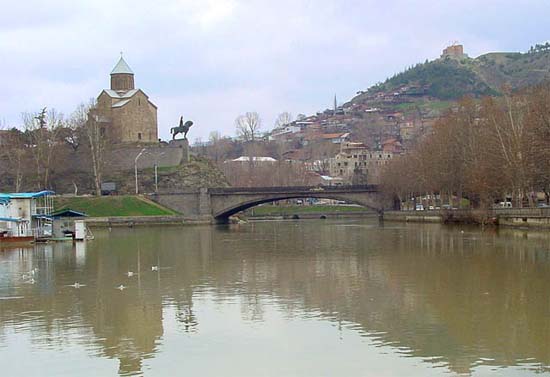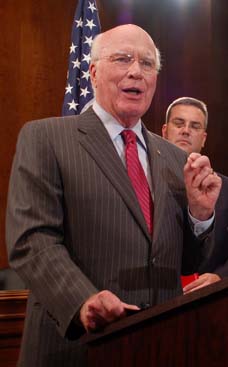
The war and its aftermath have often been called a watershed in Moscow's relations with its neighbors, but what is less understood is that Tbilisi's democratic backsliding has had almost as much influence on other post-Soviet countries in terms of their relations with Moscow and Washington. Soon after Georgia was labeled a "beacon of liberty" to the world by President Bush in 2005, the country started to regress democratically without so much as a peep from Washington. This was not lost on other, more authoritarian governments in the Caucasus and Central Asia that are still dealing with their own fledgling opposition groups.
Azerbaijan RPCV Mark Lenzi writes: Georgia, One Year Later
Georgia, One Year Later
By MARK LENZI and LINCOLN MITCHELL
Published: August 5, 2009
In the year since the war between Russia and Georgia, it has become clear that in addition to the vague intention of resetting U.S. relations with Russia, Washington must develop distinct policies for Georgia and the other countries on Russia's periphery and not continue to simply lump bilateral relations with post-Soviet governments together or in terms of their individual relations with Moscow. This new approach must reflect the reality of the Russian threat, but also the need for concrete political reform, which is the key to regional stability.
The Obama administration's Georgia policy, so far, is strikingly similar to that of the Bush White House, offering strong rhetorical support for Tbilisi in the hope that this can help reduce Russia's growing regional influence. Unfortunately, like its predecessor, the Obama administration often blurs and confuses the terms "friend" and "democracy" with regard to Georgia. This undermines the development of democracy in the former Soviet Union and beyond because few people view Georgian democracy as a serious proposition.
Both of us have worked with President Mikheil Saakashvili and other Georgian leaders before, during and after the Rose Revolution. We know firsthand about the difficulties confronting democratic development in the country, as well as how the highly personalized nature of relations between the U.S. and Georgian leadership has contributed to bipartisan American reluctance to criticize the steps Georgia has made away from democracy in recent years.
While Georgia has indeed been a friend to America, demonstrating this by sending troops to Iraq and Afghanistan, it is certainly not a pure democracy. Yet this is how Georgia generally has been viewed by the Obama and Bush administrations. This was especially true during the war with Russia, when Georgia was often simplistically touted as the democratic David battling the authoritarian Russian Goliath.
Only a few years ago, Georgia was much more democratic. But excessive police action against unarmed protesters, problems with the judiciary and efforts to constrain the media have seriously eroded confidence in Mr. Saakashvili. This was one of the factors that led him to try to regain his standing by initiating the military action in South Ossetia a year ago, resulting in the disastrous war.
Russia is certainly the neighborhood bully, but this shouldn't mean that Washington lowers its democratic standards for allied governments in the region. Yet this is what has occurred.
The war and its aftermath have often been called a watershed in Moscow's relations with its neighbors, but what is less understood is that Tbilisi's democratic backsliding has had almost as much influence on other post-Soviet countries in terms of their relations with Moscow and Washington. Soon after Georgia was labeled a "beacon of liberty" to the world by President Bush in 2005, the country started to regress democratically without so much as a peep from Washington. This was not lost on other, more authoritarian governments in the Caucasus and Central Asia that are still dealing with their own fledgling opposition groups.
Tbilisi went to war to regain its territorial integrity. The irony is that the only way it can accomplish this is to become truly democratic and economically strong enough to attract its two breakaway regions back to the fold. The damage done by the war has made this task considerably more difficult.
To regain the democratic initiative in the region and to help prevent future conflagrations, the United States must make clear to Tbilisi that - while it understands that Russia is a difficult neighbor - Washington has higher standards for its allies and will no longer accept empty promises of democratic advancement.
Washington can do this by withholding the military aid that Tbilisi covets, allocating those funds to strengthen democracy through the Georgian media, civil society, and electoral and judicial reforms. Anything less risks continued instability in a strategic region, and sends the wrong signals about U.S. foreign policy goals to the world's other fledgling democracies.
Mark Lenzi is a former Fulbright scholar and country director for the International Republican Institute in Georgia. Lincoln Mitchell is an assistant professor of international politics at Columbia University and a former country director for the National Democratic Institute in Georgia.













